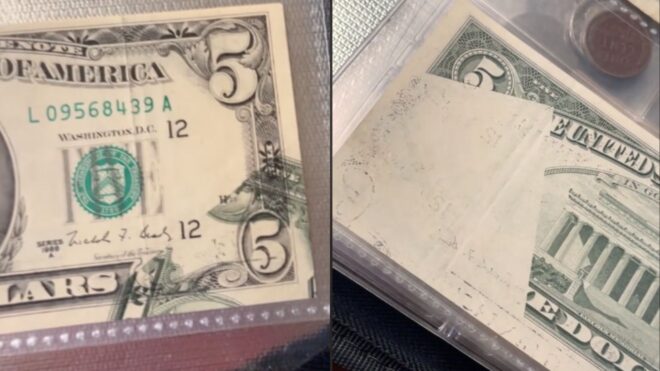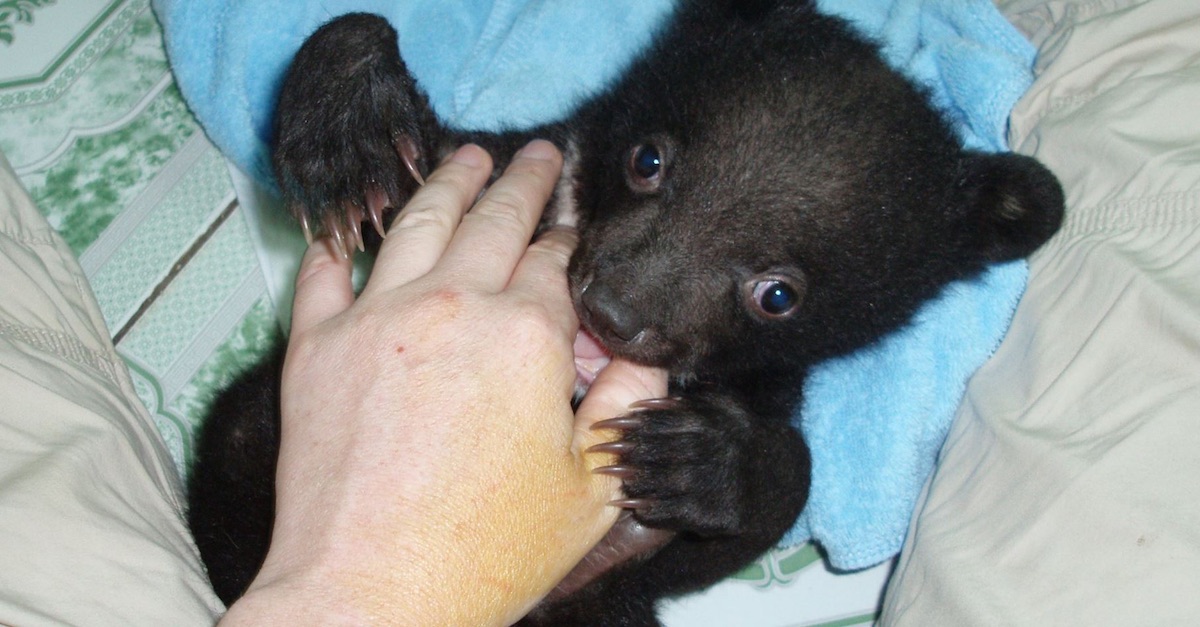
The practice of bear bile farming has existed for decades. Measures to prohibit the trade have been introduced only in recent years (it is now illegal in several Southeast Asian countries), but large populations of bears are still under enormous threat.
Bears are kept in captivity so that traders can harvest their bile, the digestive substance produced by the liver. It is used in some traditional eastern medicines, and is therefore in demand.
In fact, in China alone, bear bile farming has grown to become a multimillion dollar industry.
Many wildlife animal rescue organizations have stood up to this despicable practice. Animals Asia, one of the most well-known nonprofits that rescues endangered and abused bears, has rescued over 500 bears over the years.
Below, we take a look at how some of these baby bears are cared for in the sanctuaries, and how they are learning to play and grow in safe and encouraging environments.
Scroll down to see how these baby bears are being nurtured to learn and grow, and let us know your thoughts about animal rescue in the comments below.
[H/T: The Dodo]
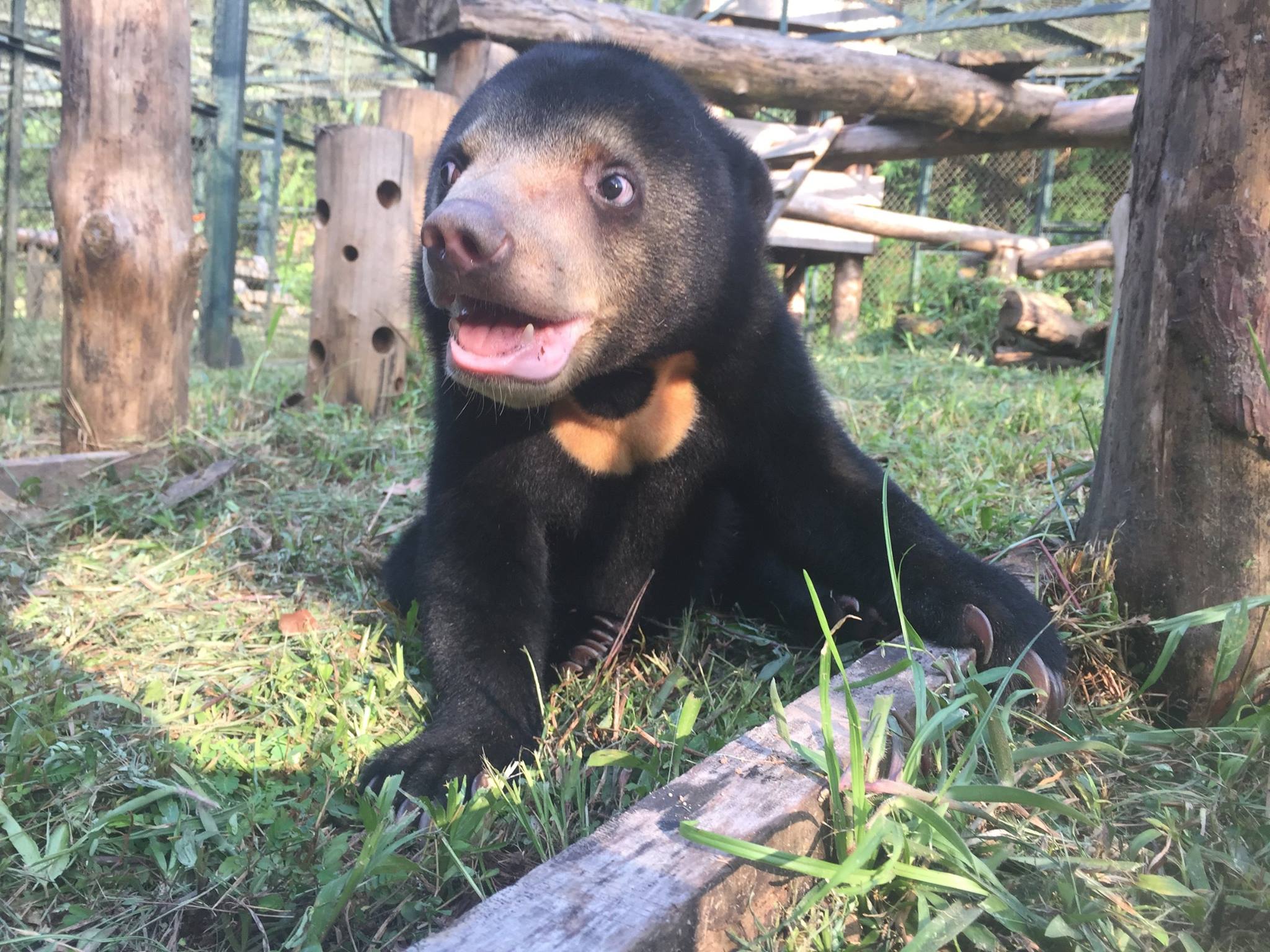
Since 1998, nonprofit animal rescue organization Animals Asia has been rescuing and protecting abused bears.
For a long time, team members have focused on battling the vicious bear bile trade farms in Southeast Asia, which has trapped and abused over 10,000 bears.
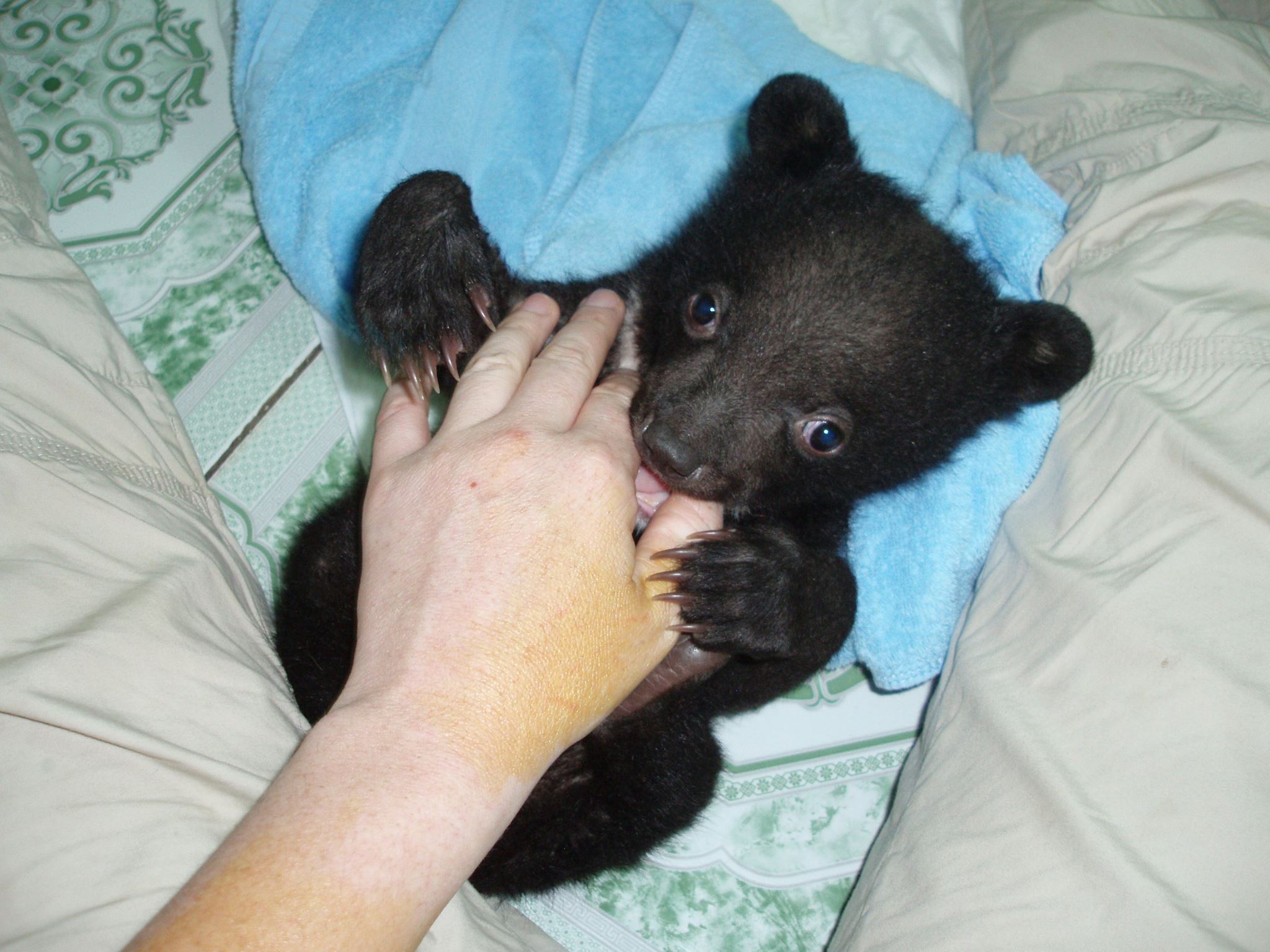
Animals Asia has sanctuaries in China and Vietnam, and together, they have rescued over 500 bears.
In addition, the organization also strives to end the trade of dogs and cats for food, and is working to put a stop to terrible animal practices and treatment in zoos and safari parks across Asia.
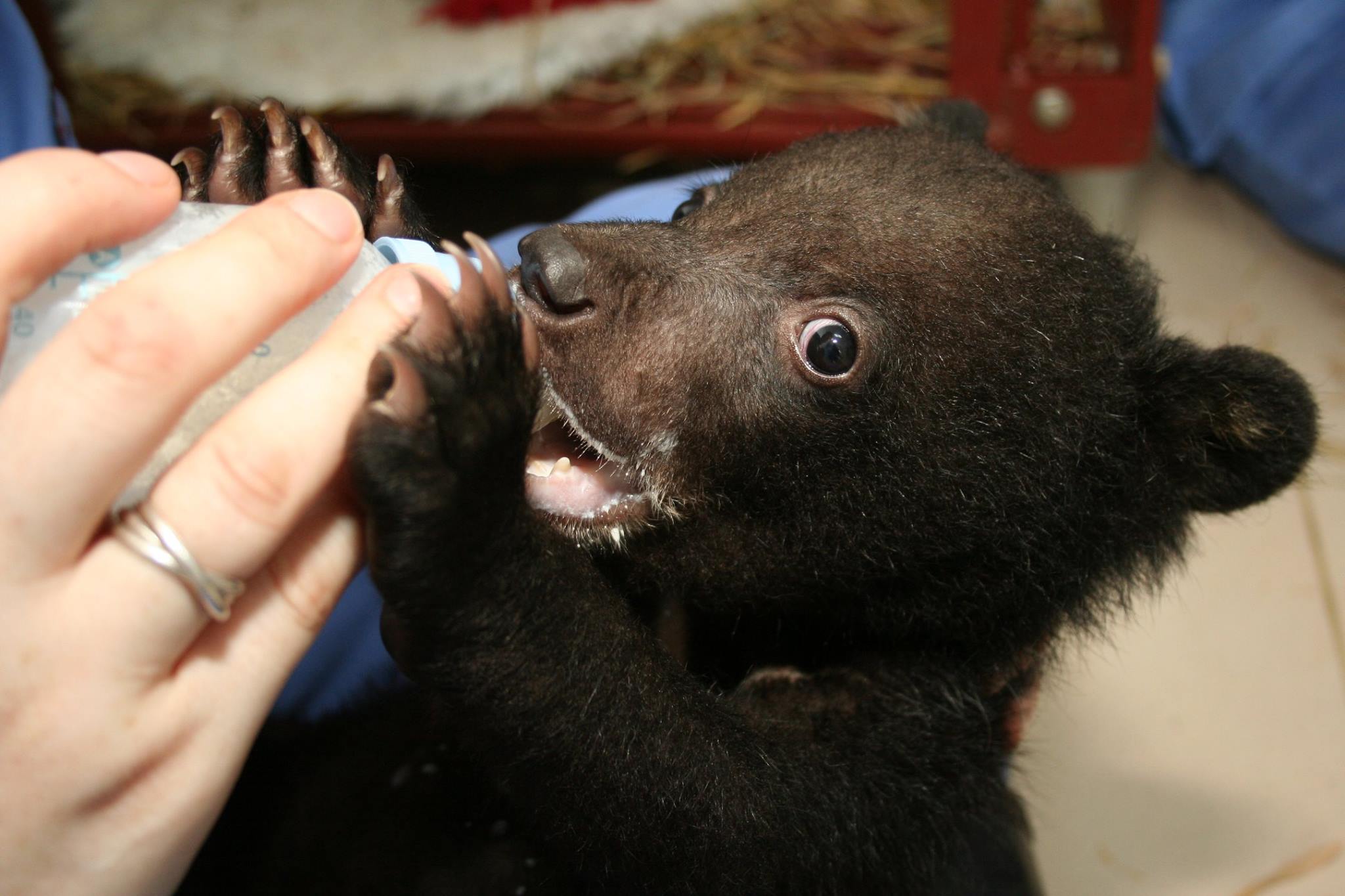
In this story, we focus on a few of the baby bears that the sanctuaries have taken under their wing.
We start with Taurus, pictured here, who was rescued when he was tiny.
Under the sanctuary’s care, he has grown into a healthy, full-size bear!
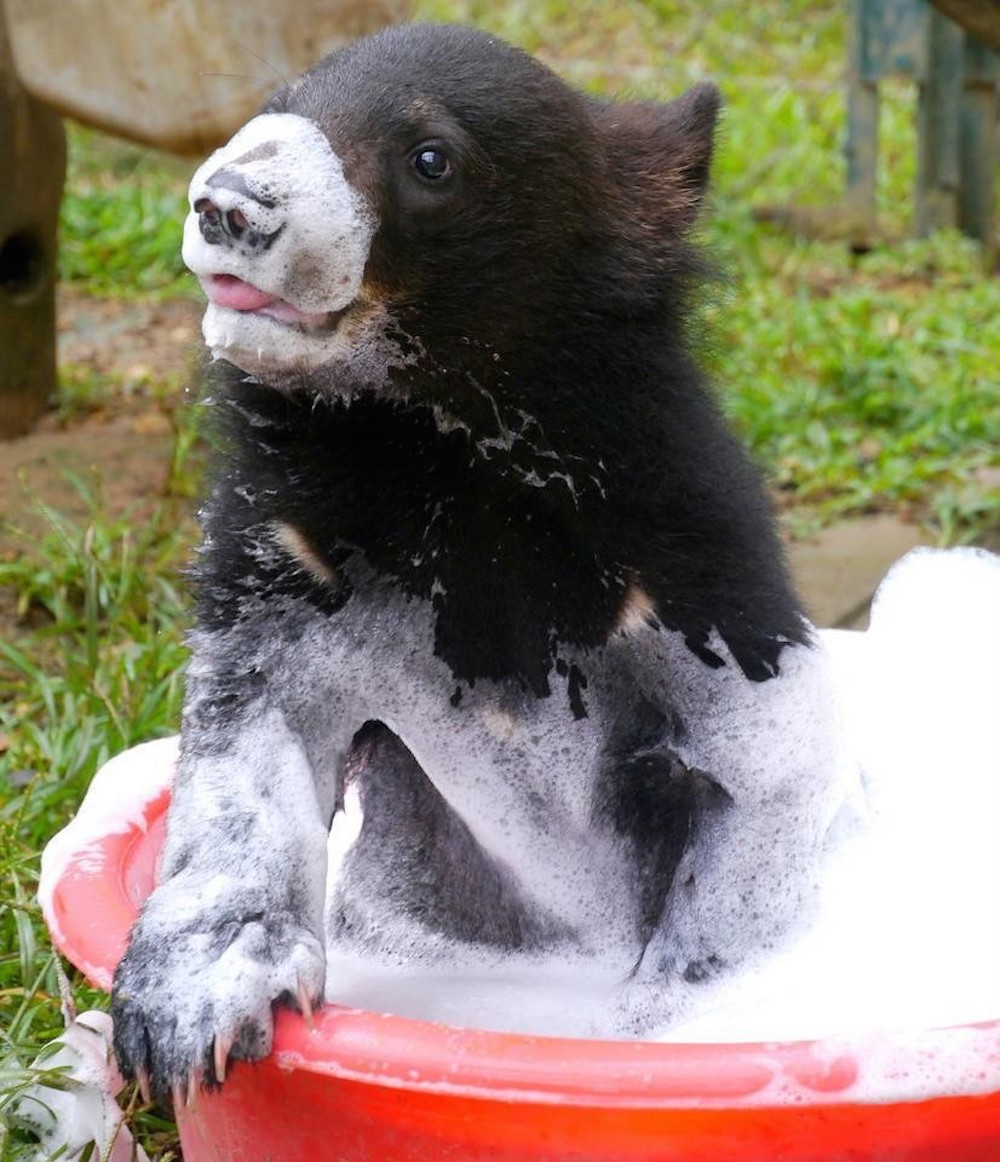
Sisters Misty and Rain, rescued baby moon bears, love taking soapy baths and splashing around in the water.
It’s important for the staff at these sanctuaries to stimulate the cubs’ minds with healthy play.
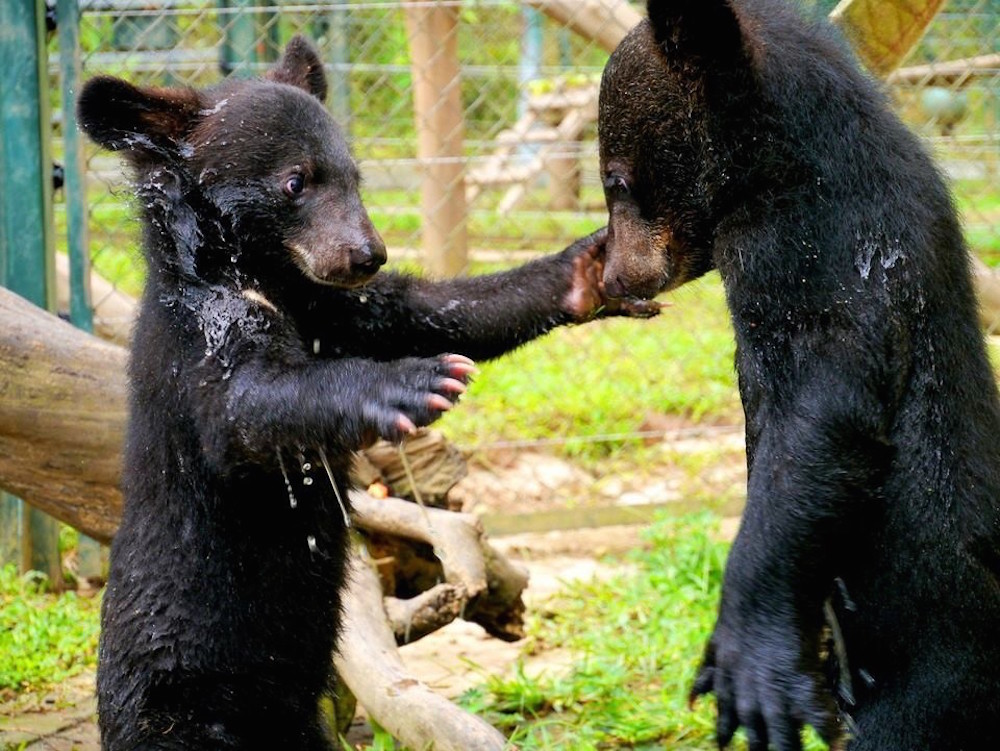
Any activity that helps them see, smell, hear, touch, and taste new things is always extremely encouraged.
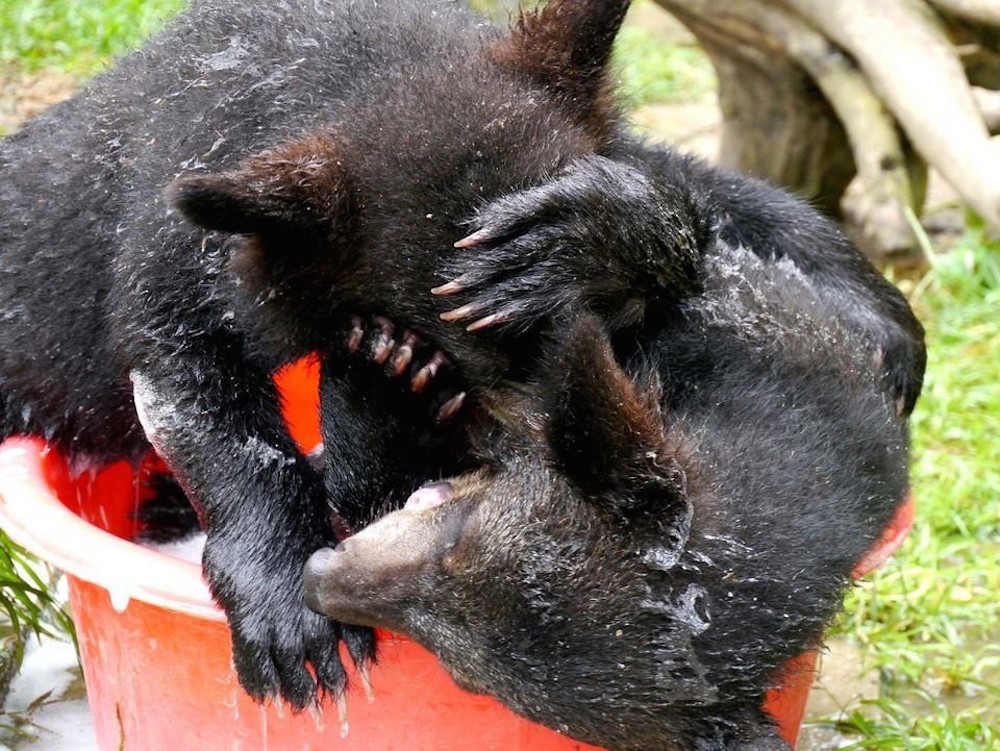
Misty and Rain have lost their mother, and now reside at Animals Asia’s Vietnam Bear Sanctuary.
Like many other young bears, the sisters were taken from their natural habitats after hunters and poachers captured their mother for the brutal wildlife animal trade.
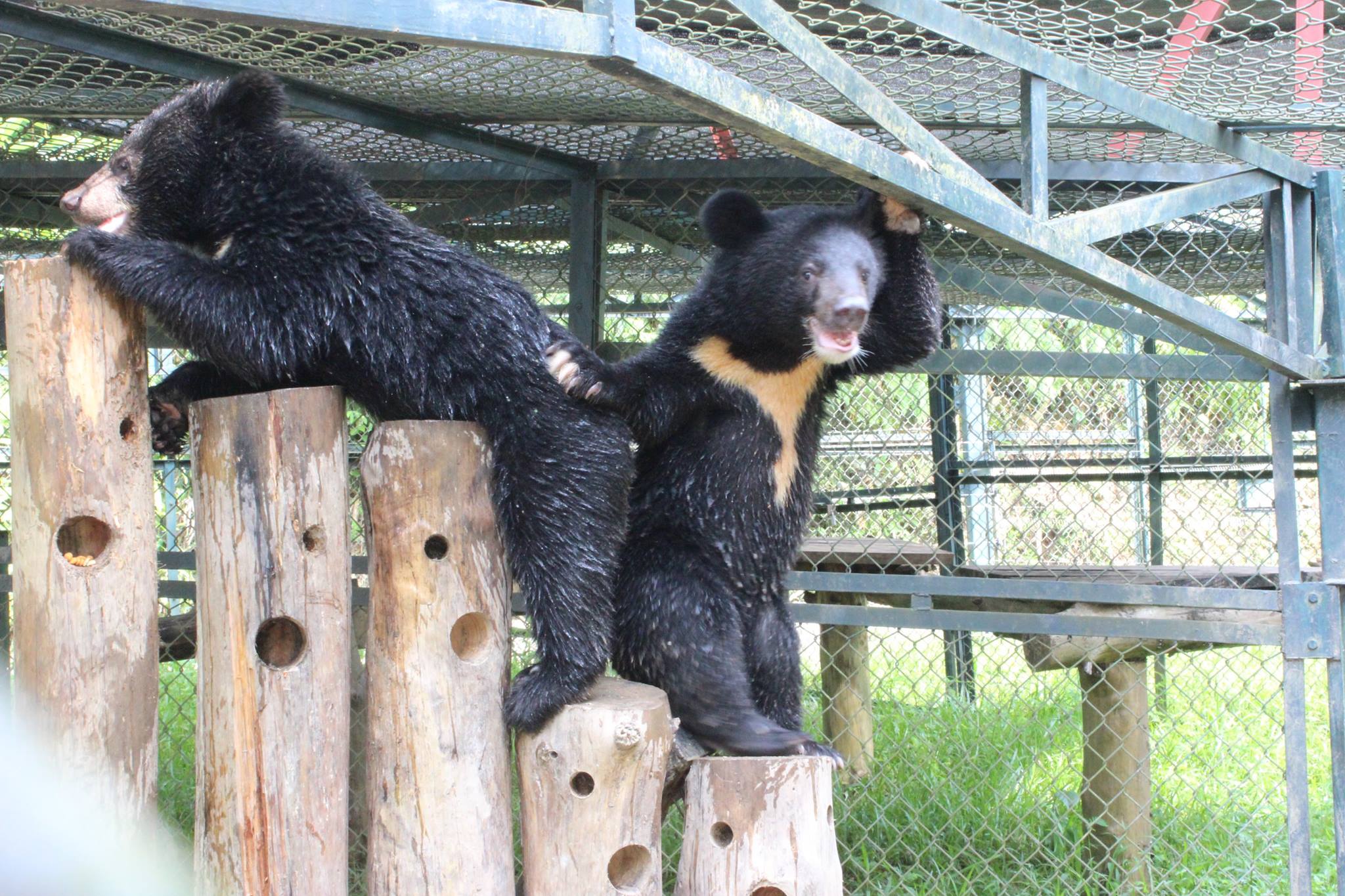
Unfortunately, the majority of young cubs at the sanctuaries will have to grow up without the nurture and guidance of their mothers.
“Without a mother, they haven’t learned many of the basic skills that they’d need for survival,” Steve Jackson, head of international communications at Animals Asia, told The Dodo.
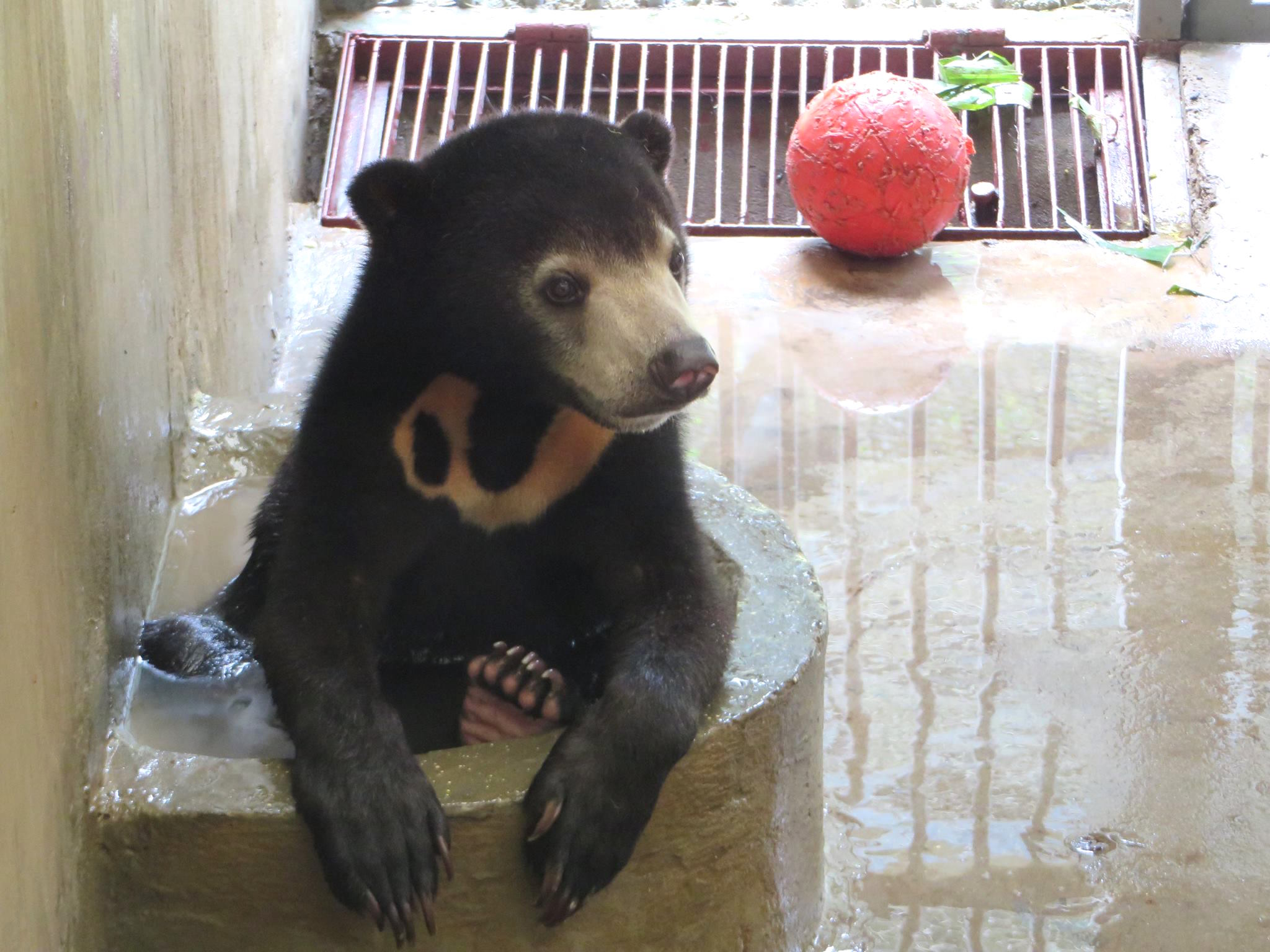
There will probably never be a safe place to release these cubs back into the wild.
Out there, they will have to know how to hunt and find shelter. Without their mother to teach them these crucial survival skills, they will be left helpless even if they were to return to nature one day.
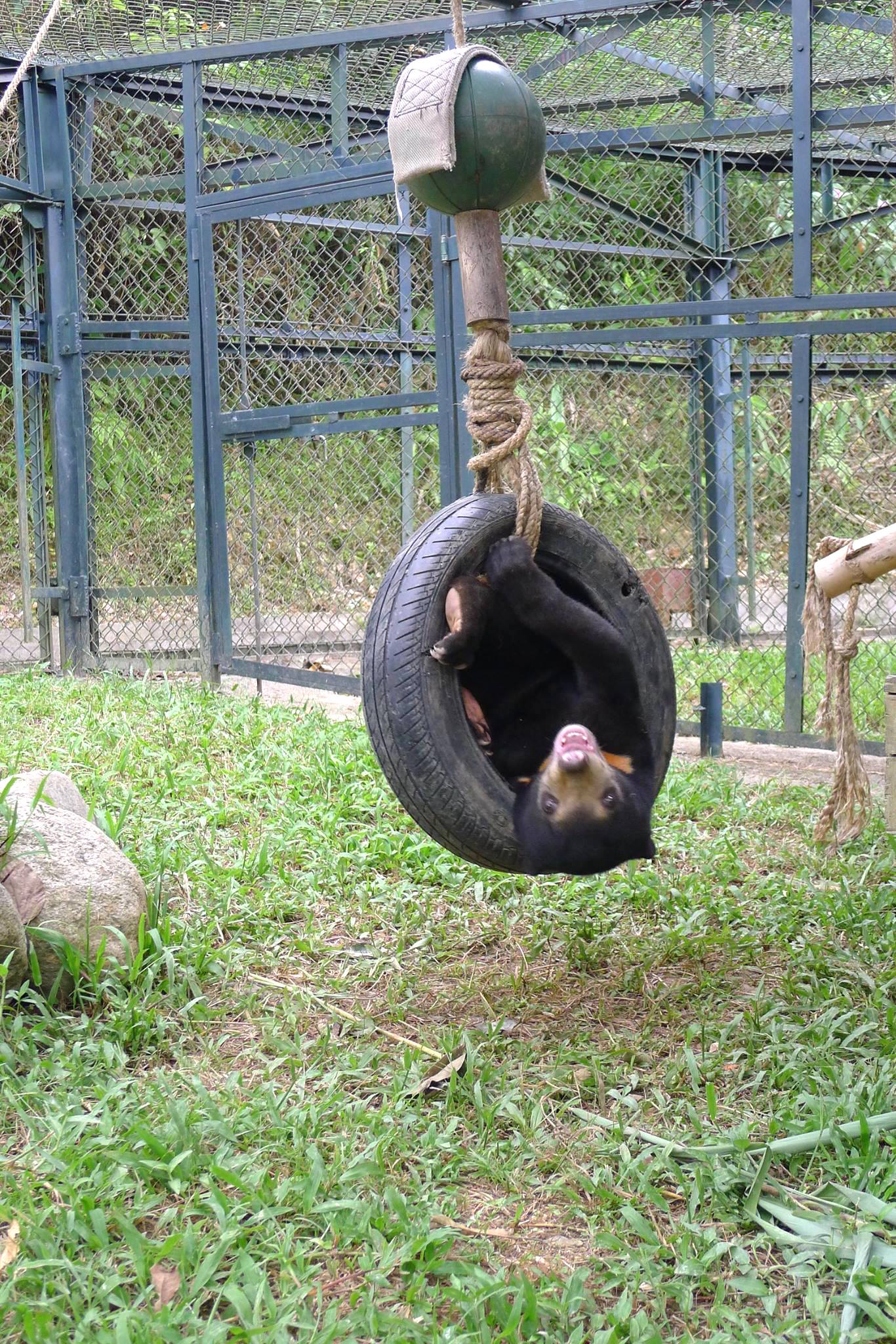
Because of this, Animals Asia is making “a lifetime commitment” to each and every one of the bears that its sanctuaries rescue.
Click here to visit Animals Asia’s Facebook page, and to find out more about how you can help out their cause.
Please SHARE if you are passionate about saving wildlife animals!

